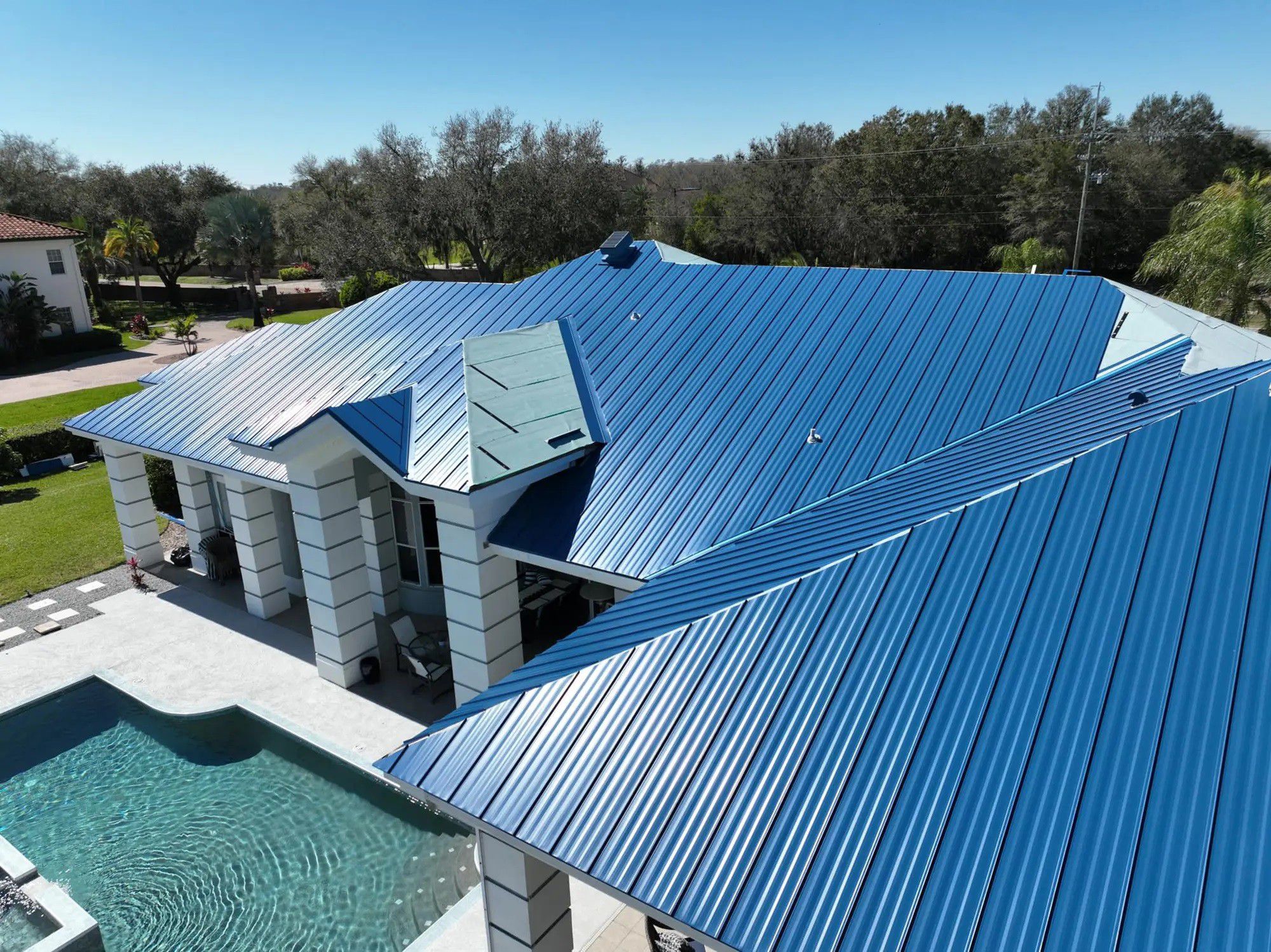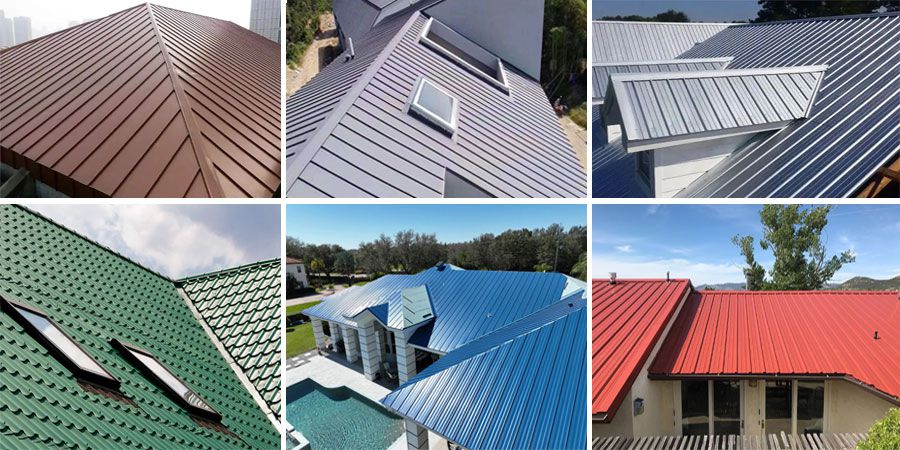Color coated aluminum is an ideal roofing material due to its combination of durability, aesthetic flexibility, energy efficiency and low maintenance requirements.

Color coated aluminum is an ideal roofing material due to its combination of durability, aesthetic flexibility, energy efficiency and low maintenance requirements.
Color coated aluminum is an ideal roofing material due to its combination of durability, aesthetic flexibility, energy efficiency and low maintenance requirements. Its versatility makes it suitable for a wide range of applications, from residential homes to large commercial and industrial buildings.
Aluminum Grades:
Preferably aluminum-magnesium-manganese alloy 3003, 3004 or 3105 series H46 H44
Thickness:
Minimum thickness: 0.020 inches (0.5 mm)
Standard thickness: 0.024 to 0.032 inches (0.6 to 0.8 mm) for most applications
Coating Type:
Polyester: Standard durability and color retention
PVDF (Polyvinylidene Fluoride): High-performance coating for enhanced durability and UV resistance
Total Coating Thickness:
Minimum of 0.5 to 1.0 mils (12 to 25 microns) for standard coatings; 1.0 to 2.0 mils (25 to 50 microns) for PVDF coatings
Color:
A wide range of colors available; provide color samples for approval
Gloss Level:
Specify desired gloss level (e.g., low, medium, high gloss), typically measured on a scale from 0 to 100.
Standing Seam Panels:
These panels have raised seams that interlock, providing a sleek appearance and excellent water resistance.
Shingles:
Color-coated aluminum shingles can mimic the appearance of traditional roofing materials while offering the benefits of aluminum.
Flat Panels:
Used in modern architectural designs, flat panels can be arranged in various configurations for aesthetic effect.
Durability:
Corrosion Resistance: Aluminum naturally forms a protective oxide layer that makes it highly resistant to rust and corrosion. The color coating further enhances this protective quality.
Weather Resistance: It can withstand harsh weather conditions, including heavy rain, snow, wind, and UV radiation, without deteriorating.
Lightweight:
Aluminum is significantly lighter than many traditional roofing materials, such as concrete or clay tiles. This reduces the load on the building's structure and can simplify installation.
Aesthetic Versatility:
Color-coated aluminum is available in a wide range of colors and finishes, allowing for creative architectural designs. The color coating can be customized to match or complement the building's exterior.
Energy Efficiency:
Many color coated aluminum roofs feature reflective coatings that help reduce heat absorption. This can lead to lower energy costs for cooling, making it an energy-efficient option.
Low Maintenance:
The smooth surface of color-coated aluminum makes it easy to clean and maintain. It is less prone to mold, mildew, and algae growth compared to other roofing materials.
Longevity:
With proper care, color coated aluminum roofs can last 40 years or more, often outlasting traditional roofing materials. The combination of aluminum's natural properties and the protective coating ensures long-term performance.
Sustainability:
Aluminum is 100% recyclable, making it an environmentally friendly option. Many manufacturers produce aluminum from recycled materials, contributing to sustainable building practices.
Installation Flexibility:
Color coated aluminum can be easily formed into different shapes and styles, accommodating various architectural designs. It can be used for standing seam roofs, shingles, and flat panels.
Fire Resistance:
Aluminum is a non-combustible material, which adds an extra layer of safety in case of fire.
Residential Roofing:
Homeowners often choose color coated aluminum for its aesthetic appeal, durability, and low maintenance. It can enhance the overall look of a home while providing reliable protection.
Commercial Roofing:
Many commercial buildings utilize color coated aluminum for its longevity and energy efficiency. It is commonly used in warehouses, retail spaces, and office buildings.
Industrial Roofing:
The lightweight nature and corrosion resistance of aluminum make it suitable for industrial facilities, including factories and manufacturing plants.
Architectural Features:
Color coated aluminum can be used for canopies, awnings, and decorative elements, adding to the aesthetic appeal of a building.

